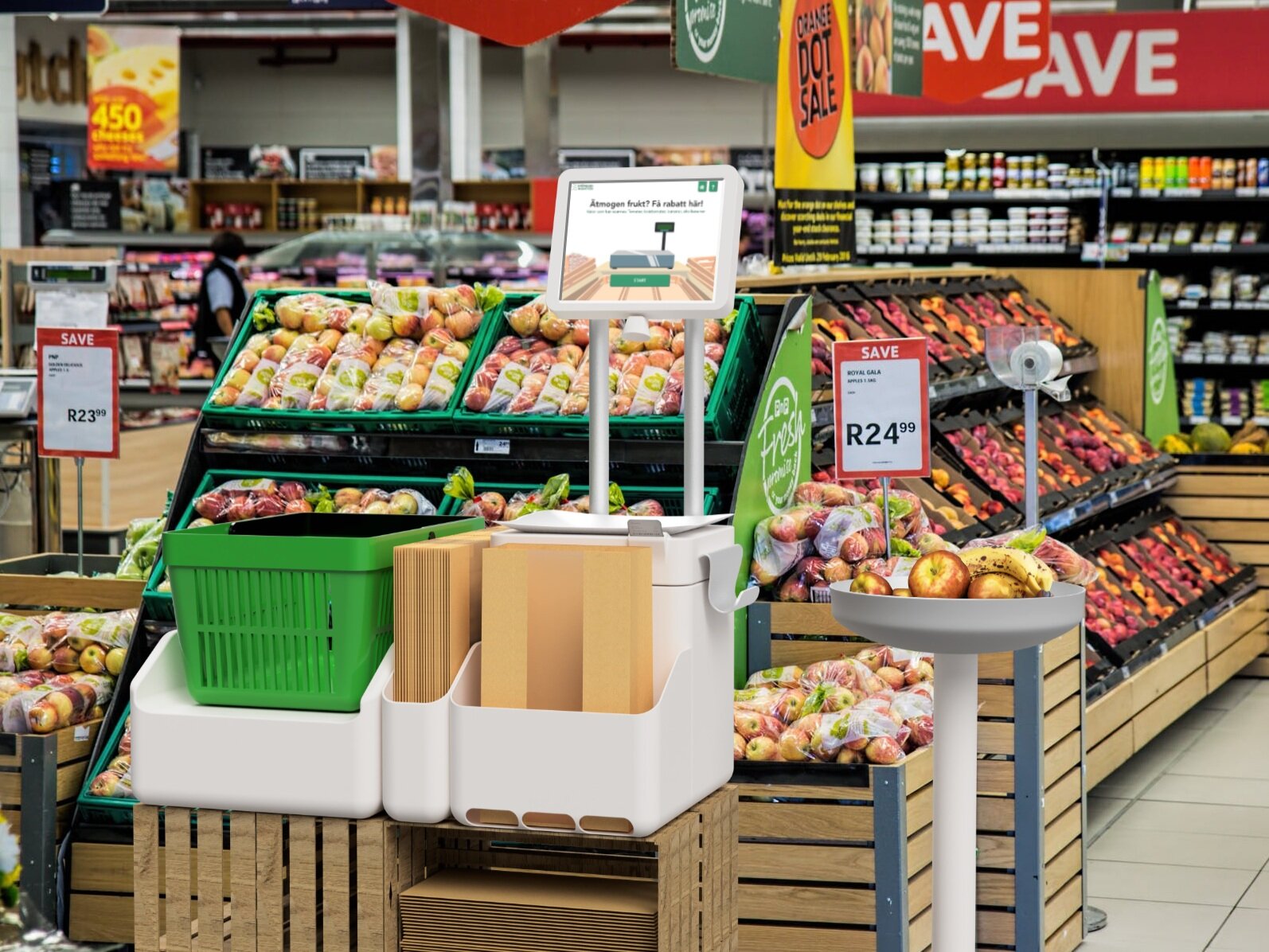The smart store scale Grönsaksrabatten
Bachelor thesis by Isabelle Kjellström, Simon Dybeck, Jonas Larsson, Oliver Palmberg, Filip Sperr and Wilhelm Wessblad in collaboration with WhyWaste AB.
Grönsaksrabatten is a store scale where fruits and vegetables can be scanned in order to receive a discount for extra ripe greens. The store scale consists of a modified scale where camera technique and well-thought-through packing surfaces simplify the interaction with the customer.
The concept goal is to influence consumer’s and store owner’s view on extra ripe greens into something positive. In addition, the concept is also meant to save time and resources for the staff who spend hours sorting out overly ripe greens, as well as to reduce the producers’ and the stores’ food waste.
For a list of the Methods, tools & PC programs used, please scroll down. For a copy of the full thesis, please press below button:

Methods, tools & PC programs
This project was highly collaborative, meaning that each group member was present in every process. The areas I was especially involved in can be found further down. The following methods, programs, and tools were used throughout the project:
3D printing
ACD³ (SWE: AktivitetsCentrerad Design)
A/B testing
Adobe After Effects (PC program)
Adobe XD (PC program)
Autodesk Fusion (PC program)
Double Diamond Framework
Braindrawing & brainstorming
Cognitive Walkthrough (CW) & Predictive Human Error Analysis (PHEA)
Function analysis
Hierarchical Task Analysis (HTA)
Interviews with following KJ-analysis
Listing requirements and guidelines
Literature studies
Market analysis
Miro (PC program)
Moodboard & inspiration board
Personas
Prototyping (physical and digital)
PMI (plus, minus, interesting)
Pugh matrix
Semantic word scale
Survey studies
SWOT analysis
Usability testing
User studies
Useberry (PC program)
Work Breakdown Structure (WBS)
I was especially contributing to the following areas:
Project coordination
Development of questionnaire targeted towards store customers & analysis of the data
Defining personas
Literature studies of store design and customer behaviour when shopping in stores
Designing a store setting in the usability lab at Chalmers
Idea generation and concept development, both the 3 basic concepts and the final concept
Designing the test procedure and interview script for the usability tests of the 3 basic concepts
Prototyping (digital and physical)
Theoretical evaluation of the physical and digital interface
Development of an implementation plan for the client